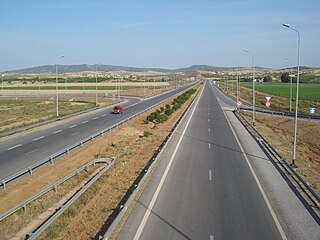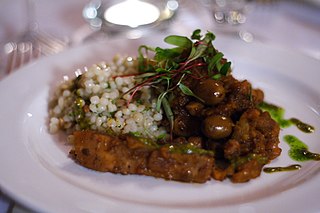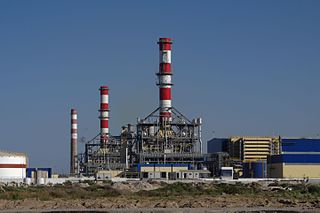
North Africa is a region encompassing the northern portion of the African continent. There is no singularly accepted scope for the region, and it is sometimes defined as stretching from the Atlantic shores of Mauritania in the west, to Egypt's Suez Canal and the Red Sea in the east. Others have limited it to the countries of Algeria, Morocco, and Tunisia, a region that was known by the French during colonial times as "Afrique du Nord" and is known by Arabs as the Maghreb. The most commonly accepted definition includes Morocco, Algeria, Tunisia, Libya, Egypt, and Sudan, the 6 countries that shape the top North of the African continent. Meanwhile, "North Africa", particularly when used in the term North Africa and the Middle East, often refers only to the countries of the Maghreb and Libya. Egypt, being also part of the Middle East, is often considered separately, due to being both North African and Middle Eastern at the same time.

Tunisia has a number of international airports to service its sizable tourist trade. Tunis is the center of the transport system as the largest city having the largest port and a light transit system.

Maghreb cuisine is the cooking of the Maghreb region, the northwesternmost part of Africa along the Mediterranean Sea, consisting of the countries of Algeria, Libya, Mauritania, Morocco, and Tunisia. The region has a high degree of geographic, political, social, economic and cultural diversity which influences its cuisine and culinary style.

Chermoula or charmoula is a marinade and relish used in Algerian, Libyan, Moroccan and Tunisian cooking. It is traditionally used to flavor fish or seafood, but it can be used on other meats or vegetables.

The Arab Maghreb Union (AMU) is a trade agreement aiming for economic and future political unity among Arab countries of the Maghreb in North Africa. Its members are the nations of Algeria, Libya, Mauritania, Morocco and Tunisia. The Union has been unable to achieve tangible progress on its goals due to deep economic and political disagreements between Morocco and Algeria regarding, among others, the issue of Western Sahara. No high level meetings have taken place since 3 July 2008, and commentators regard the Union as largely dormant.

Skhira is a coastal town in Sfax Governate, central-eastern Tunisia. It is located at around 34°18′2″N10°4′15″E. It lies on the coast of the Gulf of Gabes. It has a large oil terminal for pipelines coming from the Tunisian and Algerian oilfields. The old village grew in the late nineteenth century as the centre of the export trade in esparto grass, used in the manufacture of paper.
Entreprise tunisienne d'activités pétrolières (ETAP) is a state-owned industrial and commercial company in Tunisia directly in charge of the petroleum sector as well as the state's partnerships with foreign exploration and production operators.

Tunisian cuisine, the cuisine of Tunisia, is a blend of Mediterranean and Berber cuisines. Its distinctive spiciness comes from the many civilizations which have ruled the land now known as Tunisia: Romans, Vandals, Byzantines, Arabs, Spanish, Turkish, Italians (Sicilians), French, and the native Punics-Berber people. Many of the cooking styles and utensils began to take shape when the ancient tribes were nomads. Nomadic people were limited in their cooking implements by what pots and pans they could carry with them. The Tunisian tagine, is very different from the Algerian or Moroccan dish. It is a type of a pie dish, made out of eggs, meat and vegetables, similar to the Italian frittata or the eggah.

Sfenj is a Maghrebi doughnut: a light, spongy ring of dough fried in oil. Sfenj is eaten plain, sprinkled with sugar, or soaked in honey. It is a well-known dish in the Maghreb and is traditionally made and sold early in the morning for breakfast or in the late afternoon accompanied by tea—usually Maghrebi mint tea—or coffee. It is also called Khfaf in Algeria and other parts of the Maghreb, bambalouni in Tunisia, and sfinz in Libya. Outside the Maghreb, sfenj is often eaten by Moroccan Jews and other Sephardim in Israel and elsewhere for Hanukkah. Sfenj and other doughnuts are eaten for Hanukkah because they are fried in oil, commemorating the Hanukkah miracle wherein the oil that was supposed to light the lamp in the Temple in Jerusalem for only one day lasted for eight. Though sfenj can be made at home, as it usually is in Israel, Moroccans almost always opt to purchase it from street vendors or bakeries, where they are commonly strung on palm fronds.

Arab salad or Arabic salad, is any of a variety of salad dishes that form part of Arab cuisine. Combining many different fruits and spices, and often served as part of a mezze, Arab salads include those from Algeria and Tunisia such as the "Algerian salad" and "Black Olive and Orange salad" and from Tunisia Salata Machwiya is a grilled salad made from peppers, tomatoes, garlic and onions with olives and tuna on top, those from Syria and Lebanon such as "artichoke salad" and "Beet salad", and those from Palestine and Jordan. Other popular Arab salads eaten throughout the Arab world include fattoush and tabouli.
Mezzouna is a town and commune in the Sidi Bou Zid Governorate, Tunisia. As of 2004 it had a population of 6,101.

Harissa is a North African hot chili pepper paste, the main ingredients of which are roasted red peppers, Baklouti (بقلوطي) peppers or serrano peppers, spices and herbs such as garlic paste, caraway seeds, coriander seeds, cumin and olive oil to carry the oil-soluble flavors.
Energy in Algeria describes energy and electricity production, consumption and import in Algeria. Energy policy of Algeria will describe the energy policy in the politics of Algeria more in detail. Algeria is an OPEC country.

France–Tunisia relations refers to current and historical relationship between France and Tunisia. France conquered Tunisia in 1881 and established the French protectorate of Tunisia, which lasted until Tunisia's independence in 1956. In 1957, France cut off financial aid totaling $33.5 million to Tunisia because of its support for neighboring Algeria's independence movements. At the time, Tunisian President Habib Bourguiba noted "France and Tunisia will never again be exclusive partners". From 1987 until the 2011 Tunisian Revolution, France refused to criticize Tunisian President and ally Zine El Abidine Ben Ali despite the deaths of numerous non-violent protesters. Ben Ali eventually resigned.

Gassi Touil is a large natural gas field in the Sahara Desert region of Grand Erg Oriental of Algeria, within the commune of Hassi Messaoud. It is an outlying part of the Berkine Basin, itself a region of the Ghadames Basin that extends into Tunisia. The land surface is dominated by extensive sand dune fields.

Mombar or what is also called sheep Fawaregh is a dish brought in some of Arab countries such as Egypt, Syrian, Algeria, Tunisia and Libya, it is Sheep intestines or Beef Sausage stuffed with a rice mixture and deep fried in oil. Mombar Preparation takes some time and is considered a creamy dish.

The energy sector in Tunisia includes all production, processing and transit of energy consumption in this country.
















